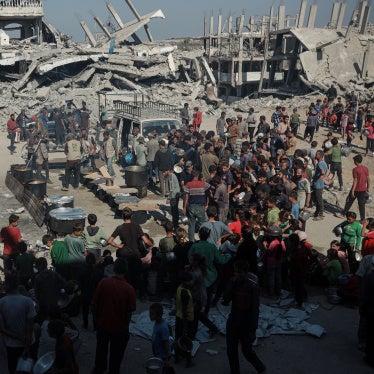Dr. Neelan Tiruchelvam was slated to be a visiting professor at Harvard Law School in the fall of 1999. A renowned constitutional lawyer from Sri Lanka, Neelan was better known to me as a leading Tamil human rights activist who had thrown his hat into the political ring. As a scholar he had helped establish think-tanks to address social issues in a country beset by communal strife. And as a member of parliament he worked to develop a national plan that would end the then-15-year-old civil war between the secessionist Liberation Tigers of Tamil Eelam (LTTE) and the Sri Lankan government.
I knew his academic appointment in Cambridge wasn't just about lectures and research -- it was also spurred by the many death threats he had received. But the school year started too late. Ten years ago this week, on July 29, 1999, a Tamil Tiger suicide bomber stepped in front of Neelan's car outside his Colombo office and blew himself up, killing Neelan. Five others were wounded in the blast.
Neelan was a soft-spoken yet passionate man with an incomprehensibly sunny disposition. He believed that all Sri Lankans -- Sinhalese, Tamils and Muslims -- could live together peacefully in a democratic society. He spoke out against abuses by the Sinhalese-dominated government, but he did not accept violence as a means to achieving the Tamil population's aims. And he rejected the claim of the Tigers' leader, Velupillai Prabhakaran, that the LTTE was the "sole representative" of the Tamil people.
Such views from a prominent Tamil undermined not only Prabhakaran's justification for unrestrained violence, but also the Tigers' argument for supremacy over all other Tamil groups. Neelan's murder and the killing over the years of others who shared his views, lost the LTTE support of many Tamils in Sri Lanka and in the diaspora, and all but foreordained the Tigers' eventual defeat.
But it is Neelan's life, not his death, that speaks to Sri Lanka's future. His 55 years were dedicated to creating a rights-respecting, multi-ethnic Sri Lanka. He would have seen the Tamil Tigers' defeat in May not just as an end to the suffering of civilians and combatants, but as an opportunity to address the grievances of Sri Lanka's minority communities and give the nation a fresh start.
Unfortunately, in defeating the Tigers, the government of President Mahinda Rajapaksa has adopted a very different strategy. Although the fighting has stopped, the continuation of wartime policies, including overbroad emergency regulations and severe restrictions on free expression, suggests that President Rajapaksa is not anxious for the politics of war to come to an end.
Today more than 280,000 Tamil civilians displaced from the war zone during the last brutal months of the fighting are locked up in detention camps, euphemistically called "welfare villages" by the government. Instead of letting families move in with relatives and host families if they wish, the government says they can only leave the camps when they can return to their villages after demining and rebuilding. The government already admits it can't meet its promise to return 80 percent of those displaced by the end of the year. Past government practice and pressure on international agencies to build permanent structures in the camps suggests that it may actually be years before most of these people return home -- and that this may be the government's intention as it tries to maintain full control over Tamil war survivors.
The government insists that letting displaced persons leave the camps would set hidden LTTE fighters loose. But thousands of alleged combatants have already been screened out from the displaced population and detained separately. By holding several hundred thousand civilians under lock and key, the government is keeping the survivors of the fighting from telling their stories to the media and human rights groups, even if their accounts include Tamil Tiger abuses as well as government ones.
More ominously, the Rajapaksa government is sending a message that it wasn't just the Tamil Tigers that were defeated, it was the Tamil population. As a result, the government is doing nothing to reach out to Neelan Tiruchelvam's successors among the Tamil population in Sri Lanka and abroad. This short-sighted approach is destined to continue state policies and practices that fomented Tamil militancy some 30 years ago.
The United States and other concerned governments need to show Colombo by words and deeds that ending the mistreatment of the Tamil population and ensuring full Tamil participation in the political process is the only way forward. Neelan certainly wouldn't have had it any other way.
James Ross is Legal and Policy Director at Human Rights Watch.





